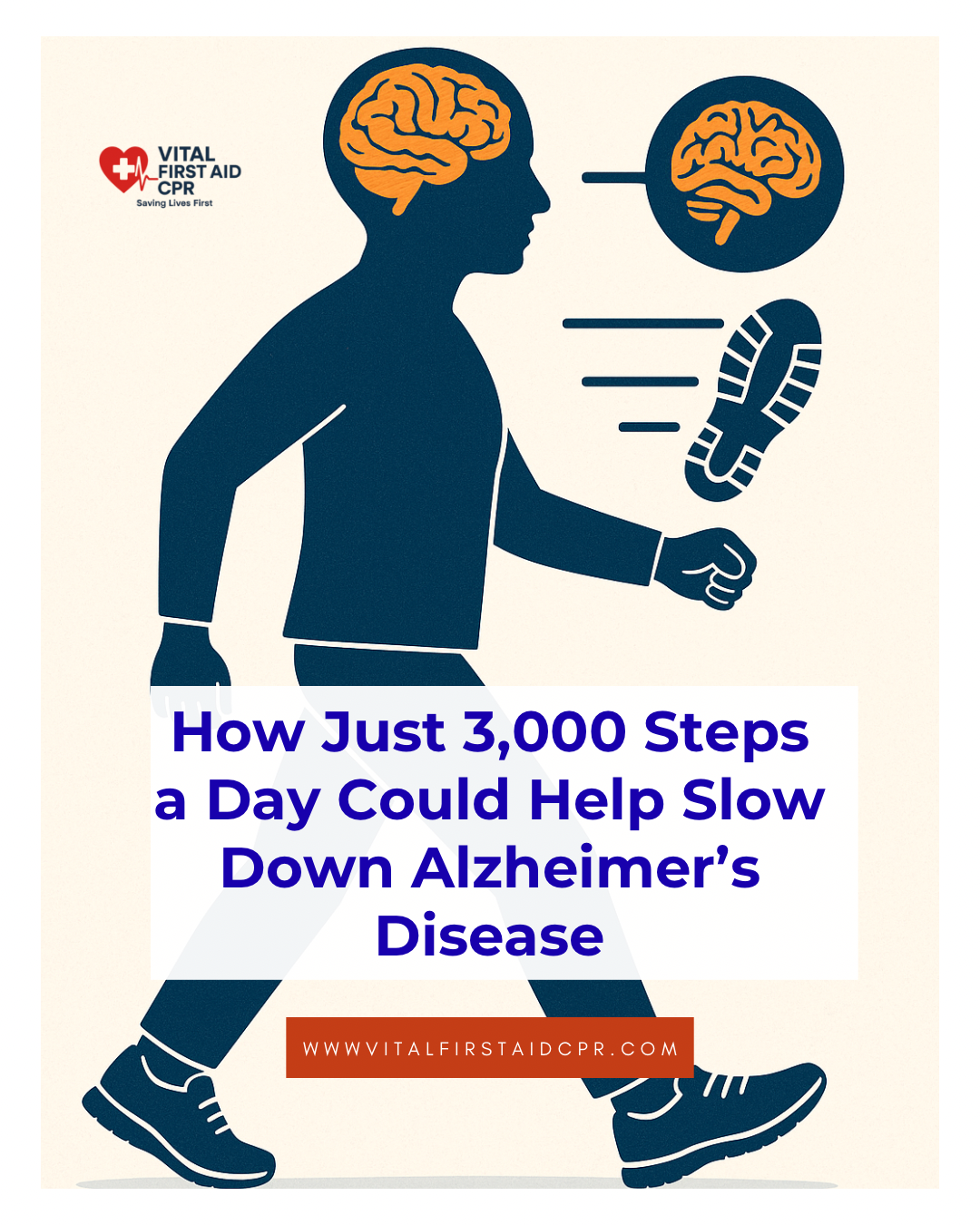How Just 3,000 Steps a Day Could Help Slow Down Alzheimer’s Disease
For years, we’ve heard that walking is good for our health — it strengthens the heart, lowers stress, and boosts energy. But new research suggests it might do something even more powerful: help slow the progression of Alzheimer’s disease.
A recent study published in Nature Medicine (November 2025) followed adults between the ages of 50 and 90 over 14 years. Researchers discovered that people who walked more each day showed slower memory loss and fewer signs of brain damage linked to Alzheimer’s — especially those who were already at higher risk.
The Power of Simple Steps
Participants who averaged around 3,000 to 5,000 steps per day delayed their cognitive decline by roughly three years. Those who walked 5,000 to 7,500 steps daily pushed that delay to nearly seven years.
Scientists found that regular walking seems to slow down the build-up of tau protein in the brain — one of the key biological changes that causes Alzheimer’s. Interestingly, walking didn’t change the amount of another protein called amyloid-beta (another marker for Alzheimer’s), but it still appeared to protect brain function.
This means walking may not prevent Alzheimer’s completely, but it can help keep the disease from advancing as quickly. In plain words: every step helps your brain stay sharper, longer.
Why It Matters
Alzheimer’s affects nearly one million Canadians and millions more worldwide. It slowly robs people of memory, independence, and connection — not just hurting those diagnosed but also their families and caregivers.
The idea that something as simple as walking could make a real difference gives hope and power back to ordinary people. You don’t need fancy gym memberships, high-tech gadgets, or strict routines. Just regular movement — whether it’s walking your dog, taking the stairs, or strolling with a friend — could support brain health.
Making It Part of Daily Life
If you already use a smartwatch or phone tracker, aim for that 5,000-step range. It’s realistic and doable, even for people who aren’t used to regular exercise. Small changes count:
Park a little farther from work or the store.
Take short walking breaks between tasks.
Go for an evening walk after dinner instead of screen time.
Even short bursts of movement add up over the day — and your brain benefits from the rhythm of steady, low-stress activity.
The Takeaway
You don’t need to run marathons to protect your brain. Consistent, simple movement is one of the most powerful tools you already have. Science is proving what many of us have felt all along: walking clears not just the mind but also keeps it healthy.
Take the first step today — literally. Lace up your shoes, get moving, and share this post to remind someone you care about that every step counts toward a healthier brain.

